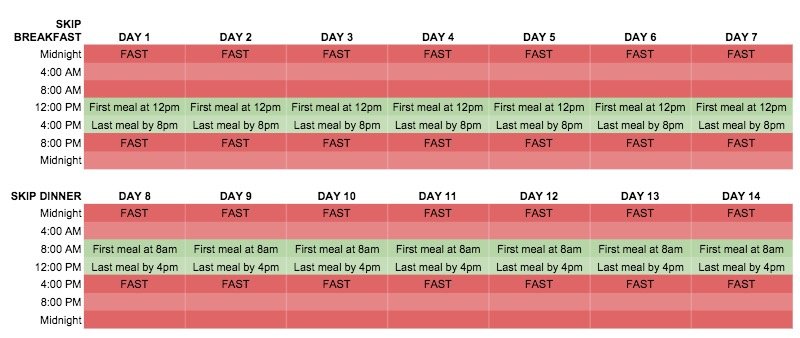As the new year starts up, a new, healthier diet is likely among many people’s resolutions. With so much nutrition information available nowadays, how does anyone know which nutritional approach to pick?
In the following blog posts, I want to help you, dear blog reader, better understand diet trends that you may be thinking about taking on and to make an educated, informed decision rather than one that is swayed by popular opinions and/or social media influencers.
So… what’s the deal with Intermittent Fasting, anyway?

Intermittent Fasting (IF) is a general term for various eating schedules that alternate periods of eating and periods of caloric restriction/non-consumption. IF has been cited by some as a potential strategy to lose weight, better regulate our blood sugar, improve digestion, and increase energy.
There’s a variety of different packages IF comes in, the most popular being the 16-8 approach, where you fast for sixteen hours and restrict your eating window to eight hours during the day. For example, you would wake up, fast until noon (only non-caloric beverages allowed during that period), eat all your meals, and stop eating at eight p.m. Other methods of IF include an 18-6 approach, alternating days of caloric restriction with days of normal caloric consumption, and performing 24/48-hour fasts once a week or a few times a month.

It should be noted, of course, that there are groups that fast currently, or that have historically fasted. Religions such as Islam perform intentional fasts as part of tradition, and in our extremely fast-paced, busy society, average people may find themselves accidentally fasting on any given day. Shifting the focus to pre-historic times, our ancestors went through alternating periods of feasting and fasting since they relied on foraging and hunting for food. Their calorie consumption varied with the seasons, animal and plant availability, and other external factors. However, the scientific analysis and utilization of caloric restriction has begun only recently.
Supporters of these eating schedules will likely cite the paleolithic background of IF as a reason to perform it. The rationale is that most of our modern health problems (diabetes, hypertension, obesity, autoimmune diseases) have sprouted from our modern eating habits. Often, it is said that IF makes logical sense because our ancestors went through periods of fasting and feasting and were much healthier than we are now. IF may give your digestive system a break and, physiologically speaking, may sharpen your brain because you are motivated to look for food. Furthermore, if you’re trying to eat less food, skipping meals may facilitate the restriction of calories and, therefore, fat loss. A lot of the evidence behind these eating schedules is anecdotal, but there are some rat studies that have shown tentative evidence of a longer lifespan in rats who fast, more weight loss in rats who fast, and improved insulin control in rats who fast.
This is where some of the shortcomings of Intermittent Fasting come in. These rat studies have not yet been replicated on humans. Additionally, rat studies are done only on male rats, and some studies have shown that IF and caloric restriction can disrupt hormonal cycles in women. Until any replication is done on humans, it’s impossible to accept that fasting may actually lengthen our lifespans, or even that it may improve glycemic control. It’s also true that weight loss comes with eating less calories than you burn, and whether you do that over six hours or twelve hours, in two meals or six meals, it does not matter so long as you’re putting yourself in a deficit. IF is not a magic pill and will not undo an unhealthy diet that is too high in calories. Sometimes, fasting can actually lead to overeating since you let yourself get so hungry that once you do eat, you go all out and eat a whole pizza, for example. The long-term sustainability of IF is another thing to be mindful of as well if you feel that you struggle with this overeating and/or with fitting the diet into your current schedule.
The bottom line: It’s up to you! If intermittent fasting allows you to be more productive, feel healthier, achieve your fitness goals, etc… there are few clinically proven risks associated, save for potential hormonal disruptions and poorer blood glucose regulation in women. Often, women are advised to do shorter fasting windows and/or less radical caloric restriction. However, if it makes you overly focused on food, cranky, lethargic, then there is also no risk associated with eating healthy foods more frequently throughout the day and opting out of the fasting lifestyle.